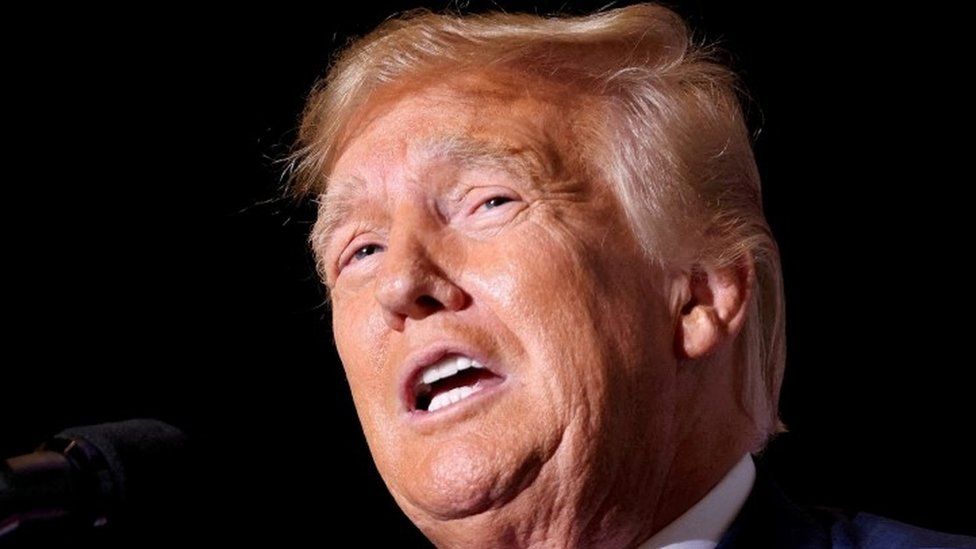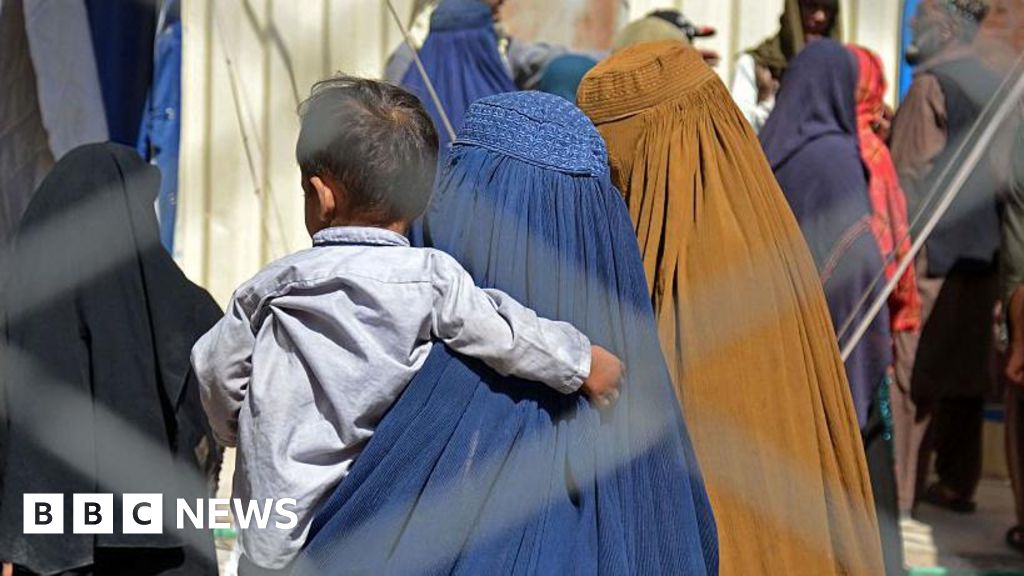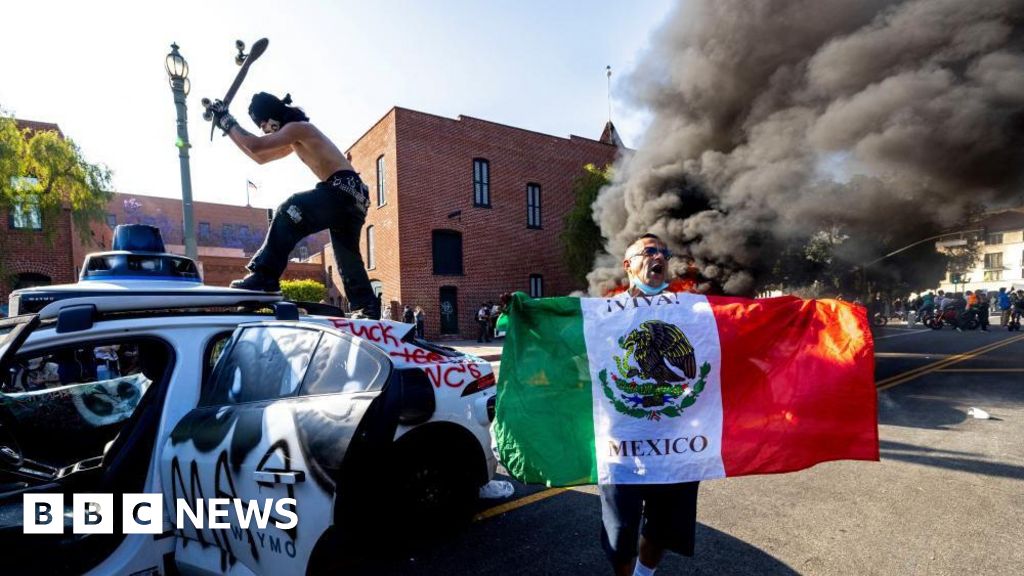ARTICLE AD BOX
 Image source, Reuters
Image source, Reuters
By Robert Greenall
BBC News
Former US President Donald Trump has been indicted in connection with the events surrounding the 6 January 2021 riots at the US Capitol.
The Republican politician denies wrongdoing and has described the case as "ridiculous".
He has already been charged in two other cases - with mishandling classified files and falsifying business records to cover up a hush-money payment to a porn star.
Here are some of the key questions surrounding the case.
What are the charges?
Mr Trump, who lost the 2020 presidential election to Democrat Joe Biden, has been charged with plotting to overturn his defeat.
He is accused of four counts:
- conspiracy to defraud the US
- conspiracy to obstruct an official proceeding
- obstruction of an official proceeding
- conspiracy against the rights of citizens
These charges relate to Mr Trump's actions over a period of more than two months from soon after election day (3 November) until the day he left the White House on 20 January.
The first count refers to alleged attempts to obstruct the collection, counting and certification of votes.
The second and third deal with alleged attempts to obstruct the certification of electoral college votes in the US Congress on 6 January, which culminated in the Capitol riots.
The fourth charge is about alleged attempts to interfere with citizens' right to vote and to have their votes counted.
How serious are the charges compared to previous indictments?
This is Mr Trump's third indictment and some legal experts have said it may not be the strongest case brought against him. He may face deeper legal peril elsewhere.
But in terms of the gravity of the charges, these are the most serious and consequential, says our North America editor, Sarah Smith.
This is the first time he is being indicted for something which took place while he was still in office, she says. And there is also a real-world impact laid out in this indictment which we have not seen in the other cases.
Although special counsel Jack Smith stopped short of charging Mr Trump with inciting the mob which attacked the US Capitol, the prosecutor said it was "fuelled by lies, lies by the defendant".
Former federal prosecutor Renato Mariotti told the BBC's Today programme that this was the first indictment in US history that was charging a former president for conduct that was unique to his office, in other words "trying to remain in office and prevent the peaceful transfer to power".
What happens next?
Mr Trump is due to appear in court in Washington DC on Thursday. It is not clear as yet whether he will appear in person or remotely.
The man leading the inquiry, special counsel Jack Smith, is pledging to seek a "speedy trial", but it is far from certain that this will happen, for several reasons.
This trial will be competing for time with the other cases against him - they cannot all be conducted at the same time. Also it is unlikely to be scheduled for key moments during the election, such as the Republican National Convention when a presidential candidate is formally chosen.
And as Mr Mariotti points out, there are plenty of ways in the US justice system to allow for more time for a trial.
So the possibility remains that Mr Trump could have already been elected president by the time the trial starts.
Could Trump go to prison and still run for president?
The former president, at 77 years of age, is facing the possibility of a stiff prison sentence if convicted.
The judge assigned to oversee the case, Tanya Chutkan, is an Obama appointee, known to be a tough sentencer in other 6 January cases.
Mr Trump is also facing jail terms of up to 20 years in the classified documents case.
Image source, Getty Images
Image caption,Lyndon LaRouche, convicted of fraud, stood for president eight times
Under US law, nothing prevents an individual from running for office if they are facing criminal charges, or even if they are in jail.
Of course that doesn't mean that voters would want to support such a candidate.
At least two people have previously run for president with criminal convictions - socialist candidate Eugene Debs in 1920, convicted over a 1918 anti-war speech; and conspiracist Lyndon LaRouche, convicted of fraud, one of whose eight runs for president in 1992 was from a federal prison in Minnesota.
Both lost their elections.
Could Trump pardon himself if he wins the election?
Some analysts have suggested that Mr Trump could try to pardon himself if he was convicted and then won the election.
This possible scenario is untested by US law, which means that the Supreme Court might need to intervene.
He might also try to have the case dismissed if he was elected president while it was still ongoing.
One rival candidate for the Republican nomination, former Arkansas governor Asa Hutchinson, told the NBC network both scenarios were possible but said that a self-pardon was "not what the constitution intends".
He added that such a move would be "inappropriate" and "unseemly".
However, at least one of Mr Trump's rivals, Vivek Ramaswamy, has vowed to pardon Mr Trump if he is elected president.
And his main Republican opponent, Ron DeSantis, told CNN it would not be "good for the country" for Mr Trump to go to prison.

 1 year ago
210
1 year ago
210








 English (US) ·
English (US) ·